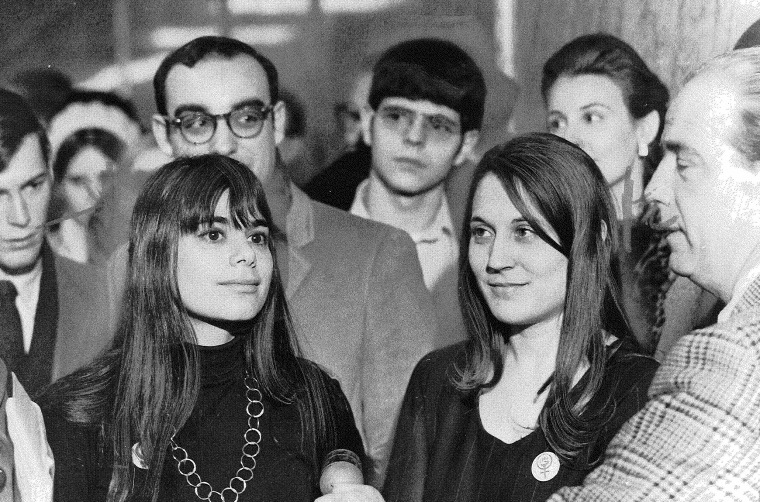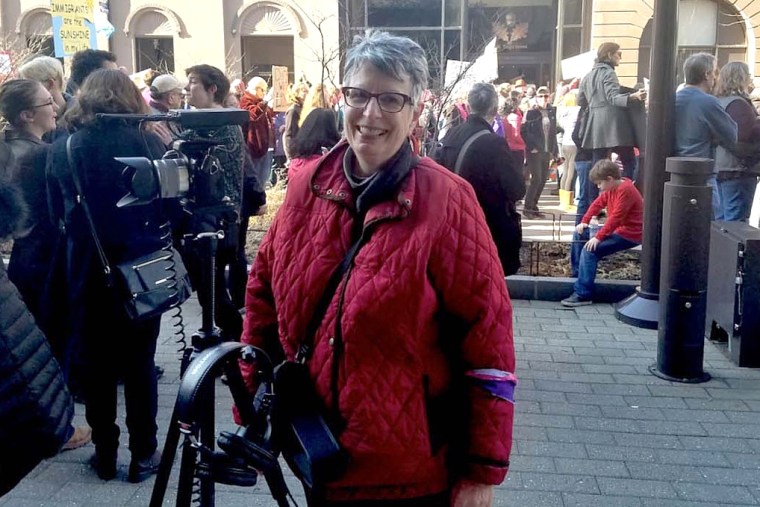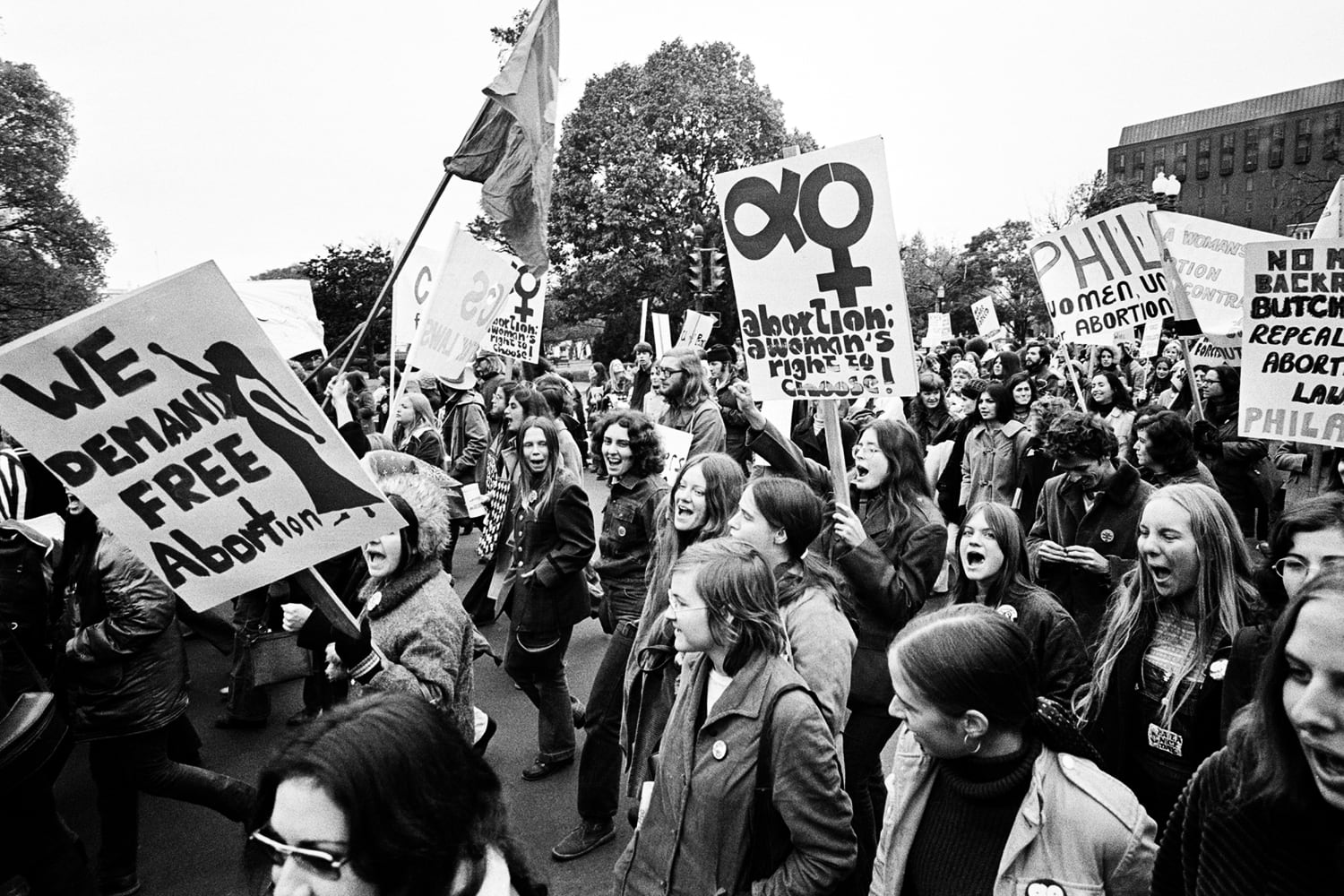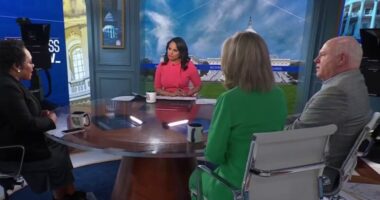Heather Booth has long believed that freedom is a constant struggle, so when she saw the leaked Supreme Court draft opinion potentially overturning longstanding abortion rights, she was “horrified but not surprised.”
Booth, 76, protested for abortion rights before they were engraved in the landmark Roe v. Wade. She also founded an underground network as a college student out of Chicago in 1965 called “Jane” that helped women undergo abortions until they became legal eight years later.
Today she continues to lend her voice to the movement she feels is seriously under threat.
“Now is the time to organize,” Booth said, encouraging anyone disturbed by the Supreme Court draft opinion leaked to Politico and published Monday night.

“The decision isn’t final and protest can impact this,” she stressed, adding abortion rights activists must now use every tool available including protest, court action, legal measures and even questioning the composition of the Supreme Court.
Booth said activists must not be afraid to “stand up to illegitimate authority” the way her generation did. “In the civil rights movement, illegitimate authority included sheriffs who arrested me and others while trying to register voters. Today, it may be a Supreme Court that does not reflect the will of the American public nor the legal precedent nor morality.”
Pre-Roe abortion rights activists across the country are sounding the alarm now much like they did in the 1960s and 1970s, saying fundamental women’s rights are at stake and urging those who support reproductive rights to organize and mobilize immediately.
“This is worse than going backward, it’s a trampling of established fundamental rights,” said Ann Hill, a retired lawyer who worked extensively on women’s rights issues through legal and grassroots movements before Roe.
Hill said she underwent an illegal termination procedure in 1968 while she was a law student at Yale University by a provider who had previously been imprisoned for manslaughter after a women died from a botched abortion he had performed.
“That’s how desperate we were,” she said.
Hill recently joined the board of directors at Grandmothers for Reproductive Rights, an organization of women who grew up in the pre-Roe v. Wade era. The group lobbies state legislatures, has an avid presence at women’s marches and hosts educational discussions on reproductive justice.
Hill said she hopes more young women will recognize the situation they are potentially facing and “wake up.”
“There was some complacency for people who were born into a post Roe v. Wade world. Women just took for granted that they can get abortions, but now that that may be in danger, this is the time to start fighting.” Hill added that this is now a “young women’s issue and needs to be a young women’s fight.”
“Nothing’s over,” she said, referring to the draft opinion, “as long as women have freedom of speech, as long as women and men are concerned that we have a just society, nothing is over.”
“Speak up, don’t be ashamed,” she said. “Fight for the passage of the Women’s Health Protection Act, fight for the end of the filibuster, there’s so much to fight for now. I mean, this is definitely not the time to say it’s over or to give up.”
Alice Wolfson was one of the women who interrupted the Senate hearings that discussed the hazards of the birth control pill in 1970. The group demanded informed consent for the pill and protested that the Senate did not have a single woman who took the pill testify.

Wolfson, 82, who was forced to travel to Mexico to obtain an abortion in 1963, went on to start several organizations, including the Committee to Defend Reproductive Rights, after the Hyde Amendment was passed. The law banned the use of federal funds to pay for abortions, except to save the life of the woman, or if the pregnancy arose from incest or rape.
Wolfson said she feels as if much of the work and toil put in by her generation will be “undone” if Roe gets overturned. She said she feels hopeless absent a significant political resurgence by women that goes beyond demonstrations.
“It’s a great thing to have the demonstrations show support, but it would be a greater thing to get people out to vote, which is a lot harder. And we’re not talking about one day. We’re talking about making those phone calls and sending those postcards and driving people to the polls and knocking on doors,” she said.
“They [conservative lawmakers] have to be as afraid of us as we are of them.”
News of the Supreme Court brought “extreme” worry and outrage to Sue Perlgut, 78, who spent much of her youth in the 1960s and 1970s marching on the streets of New York for reproductive and other women’s rights.
Perlgut, who is also a member of Grandmothers for Reproductive Rights, said she worries her 9-year-old granddaughter may grow up in a country where she has no control over her own body.
“I had an illegal abortion in 1965. I was a single woman, I could not get birth control. And that’s what’s going to happen again. I mean, all things, everything that I lived through, I’m afraid it’s going to happen again.”

Perlgut said she can’t explain how dangerous it was for women before Roe and noted that the potential overturn could lead to women trying to perform the abortion themselves or opting for unsafe underground operations.
Women have to get politically active, she said. In addition to running for office, they need to speak up to legislators and show them that most people in this country don’t support the loss of reproductive freedom.
“They have to do it now,” she said. “And they have to be loud, really loud, and aggressive.”
Source: | This article originally belongs to Nbcnews.com










